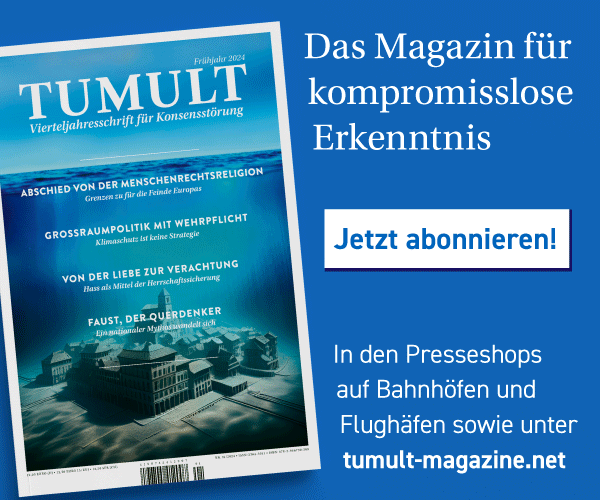Am Montag erscheint im australischen Connor Court-Verlag mein Essay Why Europe Failed. Hier schon einmal eine kurze Zusammenfassung und ein Auszug:
“Oliver Hartwich has written a compelling essay, Why Europe Failed. He lucidly identifies the essentially undemocratic character of much of the European project. Political elites, unaccountable to national electorates, impose decisions on tens of millions of people without any real fear of rebuke. Hartwich provides a sobering analysis of an ageing Europe, overburdened by the size of its welfare state. This gives added context to the current travails of Greece.”
Hon John Howard OM AC
Prime Minister of Australia 1996-2007
Why Europe Failed - edited extract:
There was a time, not long ago, when some commentators believed Europe was a model for the rest of the world. US sociologist Jeremy Rifkin forecast The European Dream: How Europe’s Vision of the Future is Quietly Eclipsing the American Dream (2004); British foreign policy expert Mark Leonard explained Why Europe Will Run the 21st Century (2005); and US publicist TR Read boldly predicted The United States of Europe: The New Superpower and the End of American Supremacy (2004).
A decade later, it would be unthinkable for anyone to write such books. The global financial crisis of 2007-08 may have started in the US with the collapse of its subprime housing market.
However, the crisis quickly spread to Europe, where it had far worse consequences. Whereas in the US the economic crisis mainly affected individual companies such as failed investment bank Lehman Brothers and insurance giant American International Group, the economic crisis in Europe quickly became a crisis of sovereigns. Greece has been teetering on the brink of bankruptcy since late 2009. Ireland, Spain, Portugal and Cyprus had to be bailed out by various mechanisms. France and Italy hardly look reassuring, either.
Some may argue that Europe’s recent troubles are just of a cyclical nature and that eventually the continent will recover. However, such an optimistic assessment is not warranted. What we are witnessing in Europe is much more fundamental. The troubles of Europe are symptoms of the end of the European world order. To put this into perspective, we need only to think back to the Great War, whose centenary we are commemorating.
World War I was the time when Europe last ruled the world politically and economically. The end of that war marked the beginning of the end of Europe’s global hegemony, along with a significant era of history.
No doubt history was made in Europe before the Great War. With the Age of Enlightenment, Europe led the way in scientific discoveries and ideas. Industrialisation catapulted Europe’s economies from medieval production methods to modernity within a few decades.
The military power of European nations was unmatched. Many European nations, even small ones such as Belgium, established colonies all over the world.
On the eve of World War I, Western Europe accounted for one-seventh of the global population but one-third of the global economy. Of the 20 largest economies in the world in 1913, six were European. Europe’s influence on global ideas and institutions was greater still, not least due to its colonial outreach.
A century ago, European capitals dominated world politics. The streets of London, Paris and Berlin were once the corridors of world power. Indeed, the monumental buildings along Whitehall, the Elysee Palace and the Reichstag still exude a profound sense of greatness and historic significance.
In some ways, this European dominance of world affairs remains palpable to this day. Among the most influential newspapers and broadcasters are the Financial Times, The Economist and the BBC, all headquartered in London. Europe accounts for three of the UN Security Council’s five permanent, veto-power holding members — Britain, France and Russia (not India, Brazil or Japan). Eurocentrism is even more pronounced in the G7, which includes Britain, Germany, France, Italy and the EU (but not Mexico, Australia or China).
But these are the dying embers of a past world behemoth. Europe’s influence is undoubtedly in decline. Whereas in 1980, the current 28 EU member states accounted for almost a third of the global economy, their share today is only 23 per cent. Because of the continuing rise of Asian economies, this figure will decline further during the coming decades.
It would be easy to excuse Europe’s relative decline as a result of the rise of other, previously poor countries. But that would be dishonest. Europe’s decay is mostly due to the way Europe has been conducting itself.
If other countries were catching up with Europe while Europe itself was doing fine, that would be no reason for concern. Such convergence is the rightful triumph of a globalised economy.
But Europe is not doing fine. Europe’s decay is mostly due to the way Europe has been conducting itself. Europe’s downfall also will show in population numbers. The UN estimates that by 2100, only 5.9 per cent of the world’s population will be European compared to the approximately 10 per cent now. This is not just a relative reduction but also an absolute decline of 104 million Europeans from 743 million today to just 639 million in 2100.
Contrast this with the only one statistic in which Europe leads the world by a mile: The EU’s 28 member states account for 54 per cent of global spending on social welfare.
It would be too simplistic to reduce Europe’s challenges to problems with its monetary union. Nor is Europe’s crisis limited to countries such as Greece that produce negative headlines at regular intervals.
Europe’s problems are more fundamental. Its elitist structure of governance has locked its political institutions into paralysis. Its economic model of a mixed market economy is unable to keep pace with more dynamic world regions. Its demographic changes will test the limits of its expanding welfare state.
And all of this is happening against a background of increased security concerns on Europe’s borders with Africa, the Arab world and Russia.
Europe is being challenged on many fronts at once, and even this is an understatement.
It would be optimistic to say Europe is at the crossroads today. At least that would suggest it has a choice between reform and decline.
But it increasingly looks as if there is no such choice and Europe’s inevitable future is one of decaying power, wealth and influence.
It would be optimistic to say Europe is at the crossroads today. Europe then is not at the crossroads but is facing a dead-end. Or a cliff. A very steep cliff.
The anti-democratic political structures of European integration should have made the European project unpopular. Similarly, the declining relative importance of Europe should have been a concern for Europe’s citizens. And if none of that bothered the Europeans, then maybe the slowing economic dynamism should have.
Yet despite such shortcomings, there have not been uprisings against (Western) Europe’s status quo since World War II. European citizens witnessed falling average growth rates decade after decade.
They saw mass unemployment become a persistent feature of their society. They also realised how their economies lost entire industries to newly developing countries. Despite this, there has been remarkable political stability for decades across the EU.
This is of course not to say that there have never been any changes of government, which sometimes even brought about some policy changes. However, the basic direction has remained the same.
At least Western Europe countries were typically governed by parties that subscribed to a mixed economy model and continued with European integration through the EU and its predecessors. Whether governments were led by centre-left or centre-right parties or coalitions became a matter of aesthetic preference. It rarely ever mattered much beyond that.
Government spending as a percentage of gross domestic product increased dramatically across Europe all through the 20th century. The pattern of government growth is also similar across Europe.
Both world wars increased government spending (except in Spain, which remained neutral in World War I and thus did not have to increase its expenditure). Since the immediate post-World War II and reconstruction era, government spending has increased to unprecedented levels. The most extreme case is France, where the state now accounts for well over half of the economy.
These spending rises have not been driven by the core areas of government spending of law and order, defence and certain public goods. Instead, all the increases in government spending have been in education, health and welfare.
In a 2014 paper for the Centre for Policy Studies, economist Brian Sturgess analysed data for 19 European OECD countries for 15 years from 1996 to 2011.
He found that, on average, European governments now direct only 19 per cent of their total spending to core responsibilities, while 10 per cent is spent on subsidies and infrastructure, 12 per cent on education, 15 per cent on health, and 38 per cent on social security.
On average, these European countries spent almost 30 per cent of GDP on welfare alone, which is more than the total of government spending before World War II.
There are many possible explanations for this growth of government. American economist Robert Higgs describes a ratchet effect in his book Crisis and Leviathan. In times of real or imagined national emergencies, mainly wars and recessions, government takes over previously private rights and activities. When the crisis passes, government retreats, but never to the same level as before.
This ratchet effect could indeed explain why European governments increased in size during the two world wars. However, it is less well suited to explain the additional (and substantial) government growth since 1945.
Another explanation is the rise of Keynesian economics after World War II. Keynesian demand-side management had given governments a licence to increase spending to “stimulate” the economy. This probably contributed somewhat to the growth of government.
However, not every European country subscribed to Keynesian policies. Germany, for example, only briefly flirted with Keynesianism in the late 1960s and 70s, yet its spending record was similar to that of countries where Keynesianism was stronger.
The theory of public choice explains this growth in government spending as a consequence of lobby activities and rent seeking. Public choice undoubtedly has strong explanatory power — but it still does not explain why European governments grew much faster than their counterparts in other developed economies such as the US, Australia or New Zealand.
Perhaps the burgeoning size of government in Europe has something to do with the specific political structure of the EU.
Though this argument may be hard to prove empirically, there is some value to it. In building the unpopular political superstructure of the EU, the European elites had to ensure the electorate would not desert them. They achieved this by establishing a welfare state that went far beyond a mere safety net. Instead, European welfare states became an all-encompassing insurance and entertainment scheme.
Seen this way, the European welfare state was a means of buying the public’s silence and acquiescence. It was the same method of securing power Juvenal described in his Satires two millennia ago: “Already long ago, from when we sold our vote to no man, the People have abdicated our duties; for the People who once upon a time handed out military command, high civil office, legions — everything, now restrains itself and anxiously hopes for just two things: bread and circuses.”
Bread and circuses — or panem et circenses in the Latin original — were the means of bribing the masses in ancient Rome. Modern Europe is witnessing a similar phenomenon. To their subservient citizens, the European elites provide free or heavily subsidised education, healthcare, TV and radio programs, roads, income support and pensions, public transport, libraries, opera houses, and theatres.
Unfortunately, it is often overlooked that government can bribe the people only with their own money. In the words of the great French economist Frederic Bastiat: “Government is the great fiction through which everybody endeavours to live at the expense of everybody else.”
As a result, the very people benefiting from the welfare state are also footing the bill — at an astonishing cost. Last year, the German Federation of Taxpayers calculated the difference between gross wages and net take-home pay based on OECD data.
To do this, they also included the effect of value added taxes, which are often hidden from view. For a single income earner on the national average income, Belgium topped the list of predatory governments with a tax burden of 59.1 per cent, followed by Hungary (54 per cent) and Germany (53.1 per cent).
In most large European economies, the burden was well above 40 per cent.
The respective tax burdens for families with two income earners and two children are somewhat lower, but tax burdens in Europe still range from 47 per cent in Greece to 29.4 per cent in the UK. By comparison, the figures for Australia and New Zealand are 23.2 per cent and 15.5 per cent, respectively.
Buying European citizens’ loyalty for their mixed economy welfare states has effectively enslaved them. Is that the price of peace the EU claims it has brought to the continent? Has Europe lost its economic liberty as the price of national safety?
The welfare state (broadly defined as all government spending outside the state’s core functions) was the means by which Europe bought itself political stability. Little wonder, then, that the moment governments could no longer afford to pay for it, the previous political consensus started falling apart.
This also explains the rise of radical parties such as Syriza in Greece, the National Front in France and Podemos in Spain.
The rise of the European welfare state, the reduction of economic dynamism and the increasingly questionable legitimacy of the European project go hand in hand. Panem et circenses could have been the motto of Europe’s post-World War II mixed economy model. It remains to be seen whether the EU will also share the Roman Empire’s fate.









